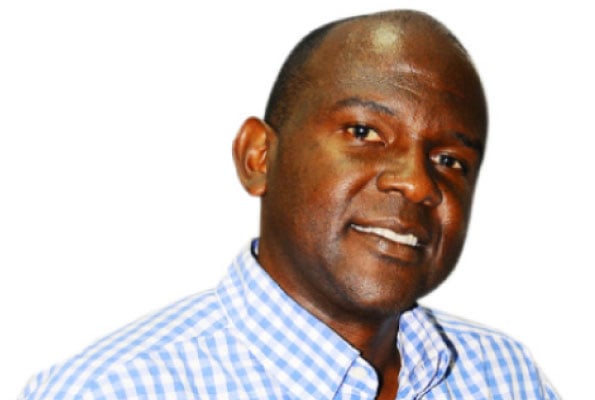Of the value of wealthy generals

Author: Nicholas Sengoba. PHOTO/FILE/COURTESY
What you need to know:
First using statistics that he poured out liberally, pitting earnings and what the average mansion would cost, he swore that ‘things’ did not add up
...you recall that one of the last acts of a rather scared late President Milton Obote pleading with the army to tell him ‘what they wanted.’
An American student doing his research for his Ph.D. in African politics engaged me at the weekend in a long debate.
He observed that whenever Ugandan Generals are in the news for some reason or another, and the scene takes us to their homes, we are always treated to expensive palatial mansions. He had mainly two issues on his mind.
First using statistics that he poured out liberally, pitting earnings and what the average mansion would cost, he swore that ‘things’ did not add up.
I argued that building a palatial mansion like he repeatedly called these houses may be financed using several avenues.
It may be an inheritance, a long term loan or even a donation by friends and relatives as recognition for their own, taking a place at the high table. You recall the group of Basongora from Kasese who built a hotel for the late Gen. James Kazini.
He accused me of knowing the ‘truth’ but being economical with it.
The second issue was in the form of a question. He wanted to know if it was not risky to for a President to have so many rich Generals.
His argument was that wealth usually leads to a quest or greed for more wealth. It might tempt the Generals to ‘make a move’ so that they are not just given ‘crumbs’ but get to a position where they serve themselves to chucks.
He was surprised when I told him that he was dead wrong. For anyone who ever has the dream of holding onto power for a lifetime, one of the smartest moves is to ensure that they have a critical mass of people with abnormal wealth and property on their side.
This act of enriching them should be out of the magnanimity of the President and they must be made aware that they owe it to him.
Acquiring the wealth may not necessarily be legal in the pure sense of the word. It may include laying opportunities at their feet like tenders and other financial soft landings in form of exemptions.
Although it must be noted that allowing them to break the law while accumulating wealth helps a President with long term plans. Once in a while should any member of this privileged class become a nuisance, then criminal proceedings may be dangled in their faces as a form of blackmail.
This group should not be selected haphazardly. It should mainly target the custodians of power not just any one.
If they be the captains of industry or business moguls like it happens in advanced economies where the billionaires are rich beyond imagination, then so be it.
If they are soldiers like is the case with most African countries, then here the focus should lie.
Rich Generals, especially those with interest in industry and real estate in the urban areas, are a gem. Matters even get deeper if they are surrounded by a sea of very poor and desperate people.
The unwashed people around them are a threat to their wealth. They will fight to ensure stability because any form or war or insurgency hurts their interests personally. The thought of leaving their soft beds and wives and going to the tall grasses, without proper flashing toilets, eating raw food is chilling to most.
They become like lions. It is said that when lions taste human flesh which is softer than that of other animals in the wild, it has to be hunted and killed. It is because it may lose the appetite for wild animals and instead hunt for humans!
They look at the desperate people around them who want to cause change as people rocking the boat and must be stopped.
That is why soldiers despite the constitutional requirement to keep out of politics, will always come out during an election campaign. Here they make direct threats that they will not allow anyone threating the prevailing peace and stability. They are involved in breaking up opposition rallies and protecting those of the ruling party.
In Uganda’s history you recall that one of the last acts of a rather scared late President Milton Obote appearing on national television pleading with the army to tell him ‘what they wanted.’
A mutiny in the ranks was brewing and eventually led to the overthrow of his government.
But before this you recall Obote had literally put all of Uganda’s foreign exchange earnings in the hands of a trusted kinsman Maj Gen David Oyite Ojok. Oyite besides being the army Chief of Staff was the Chairman of the defunt Coffee Marketing Board that exported all of Uganda’s coffee before the NRM dismantled it with liberalisation.
When Oyite died in a helicopter crash in on December 2, 1983, Obote’s government did not remain the same. Many of the Generals then did not have fixed assets like the ones we have today. Most influential people with money were in the world of business who could pay for a fight but could not counter a military force themselves.
Soldiers could afford to mutiny because they had nothing to lose even if the country went to ashes. In fact, some of them looked at it as an opportunity to profit by looting.
Secondly the ones who would be kicked out with Obote, did not have the stomach to fight to the dearth because they did not have much to protect.
That is how Obote became history. It is those who learn from history that tend to last longer.
Mr Sengoba is a commentator on political and social issues
Twitter: @nsengoba




